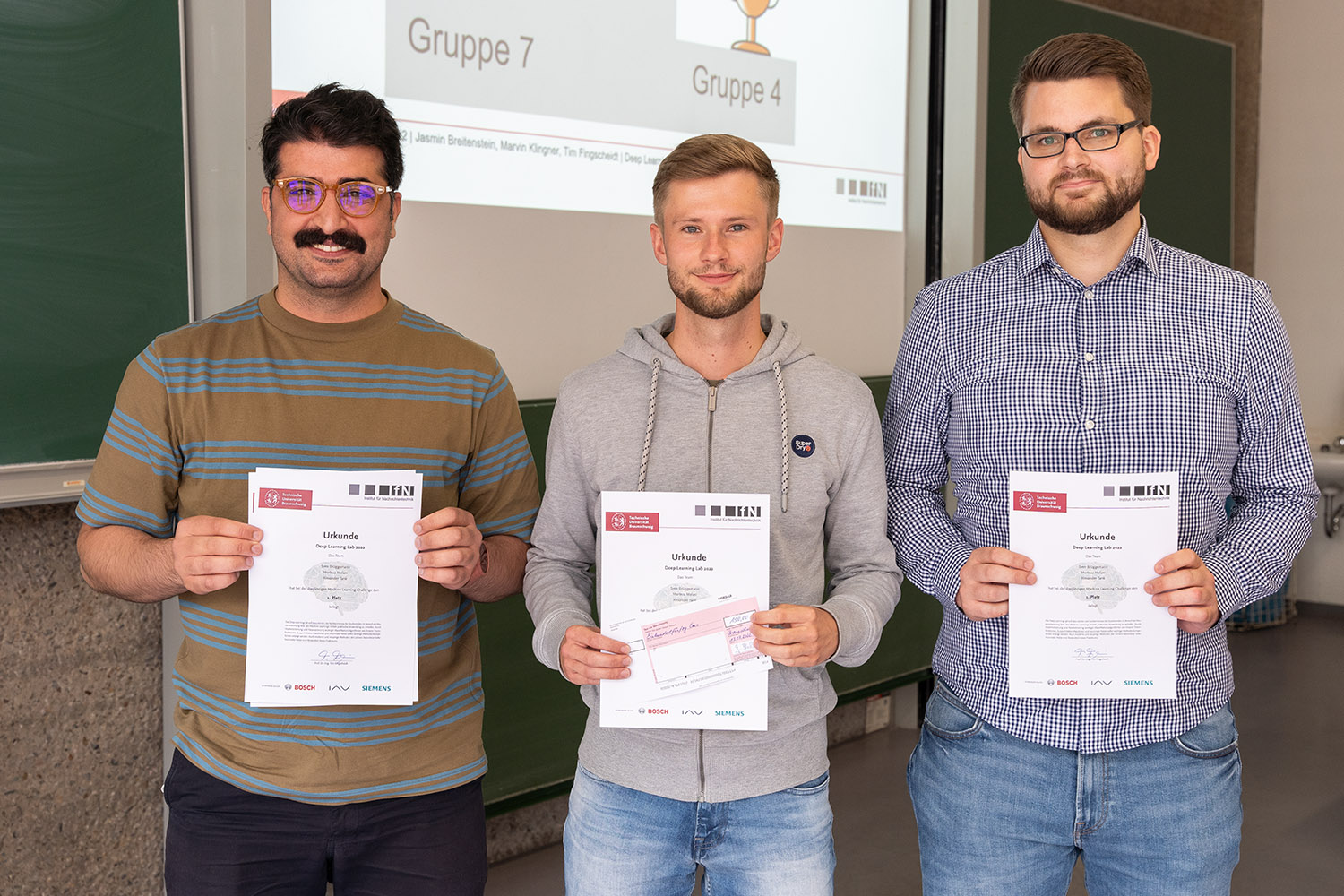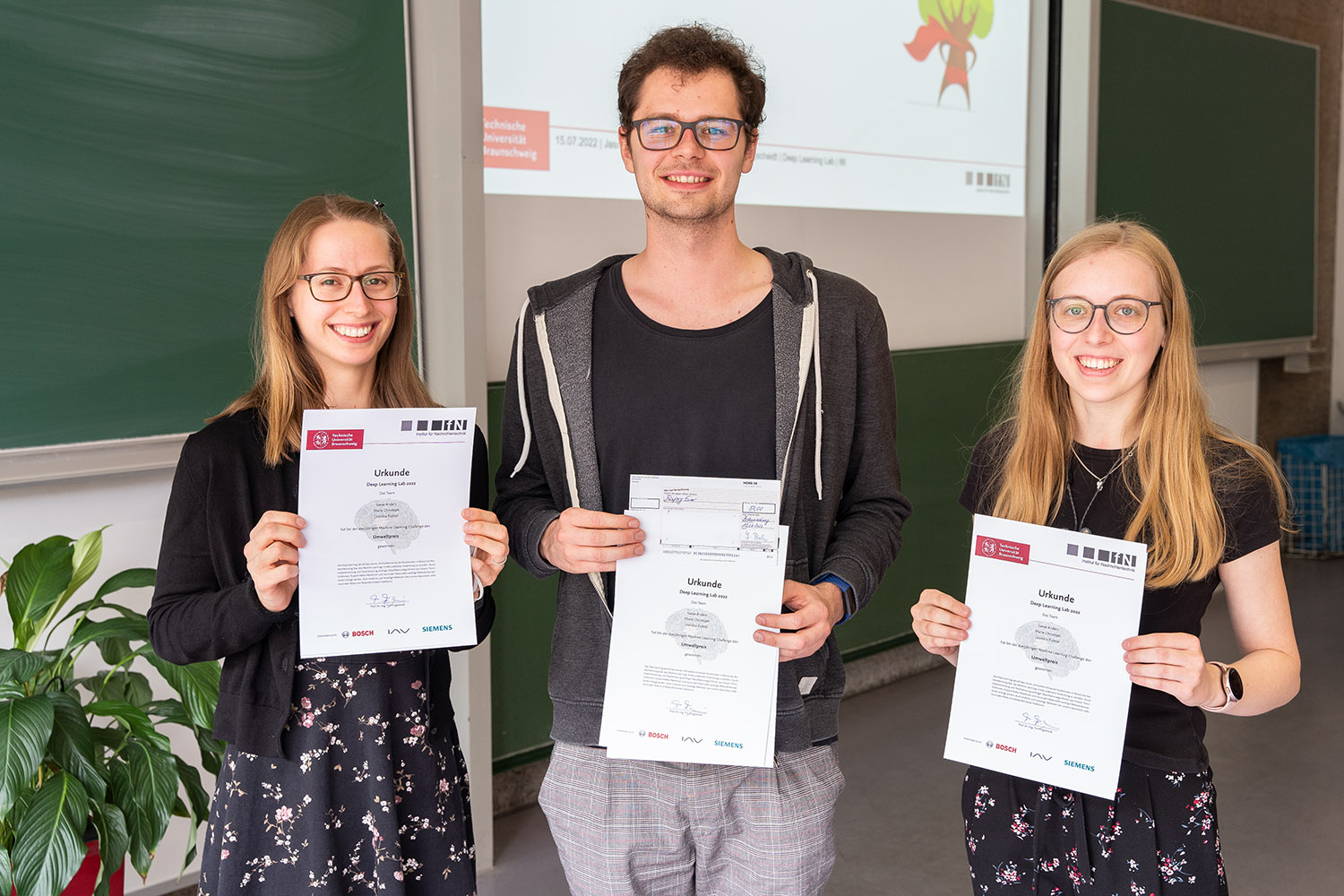Machine Pattern Recognition for Master’s Students Short review of the Deep Learning Lab 2022
The Deep Learning Lab has been producing beaming faces since 2018 – in the competition as part of a master’s course, students solve a given problem with machine learning methods as part of a challenge. The course has become so popular that teams are drawn from around 90 applications. The industry sponsors also support the format and were pleased to see highly qualified young talent.
This year, the focus of the Deep Learning Lab, or TUBS.dll for short, was once again on machine pattern recognition, or more specifically, learned depth estimation. The participants were asked to develop methods to estimate the distance to the camera from input images per pixel (depth estimation). The students were introduced to this task in several steps. First, there was an introduction to the Python programming language, before the second step was to get to know computational clusters, machine learning problems and optimisation strategies. Only after gaining this basic knowledge were the teams given the task. The performance of the developed software was measured with the help of test data sets that were unknown to the participants.

Deep Learning Lab 2022: The winning team. Photo credit: Markus Hörster/ TU Braunschweig
The Winners
A total of ten teams, each consisting of three students, took on the Deep Learning Lab’s task. This time, the first place prize of 450 euros went to Morteza Molai (Mechanical Engineering), Alexander Tank and Sven Brüggemann (both: Electronic Automotive and Aerospace Systems, ELSY).
Keeping power conservation in mind: Environmental Prize awarded for the first time

The Environmental Prize went to Maria Christoph (IST), Lasse Anderes (IST) and Leandra Fichtel (Computer Science) (from left). They needed the shortest calculation time for their solution, with 831 hours. Photo credit: Markus Hörster/TU Braunschweig
The additional Environmental Prize was awarded to Maria Christoph (Computer and Communication Systems Engineering), Lasse Anderes (Computer and Communication Systems Engineering) and Leandra Fichtel (Computer Science). The environmental prize is awarded to draw students’ attention to the fact that training neural networks, i.e. learning the patterns, consumes a lot of computing capacity and thus a lot of electricity. The prize goes to the team with the best ratio of the “quality of their network” to “computing time”.
“The Deep Learning Lab is a wonderful opportunity for students to practically apply their theoretical knowledge from lectures on machine learning. Here there is the opportunity to work on current research topics in a challenge and to network with industry partners at the final event while having a barbecue together,” says Professor Tim Fingscheidt from the Institute for Communications Technology, initiator of the successful teaching and learning format.
The Deep Learning Lab is a machine learning internship for Master’s students that began in 2018. Until 2019, the DLL was funded as a project by the Federal Ministry of Education and Research (BMBF). In addition, several companies support the Deep Learning Lab and donate the prize money. The award ceremony also included some networking opportunities for the students to establish contacts between companies and students.
In order to be able to work on the complex tasks in the Deep Learning Lab, intensive calculations are necessary. The Gauss-IT Centre takes on the role of host for the extensive computing resources. This year, a total of 47 GPUs – processor units particularly suitable for machine learning – were available here.
